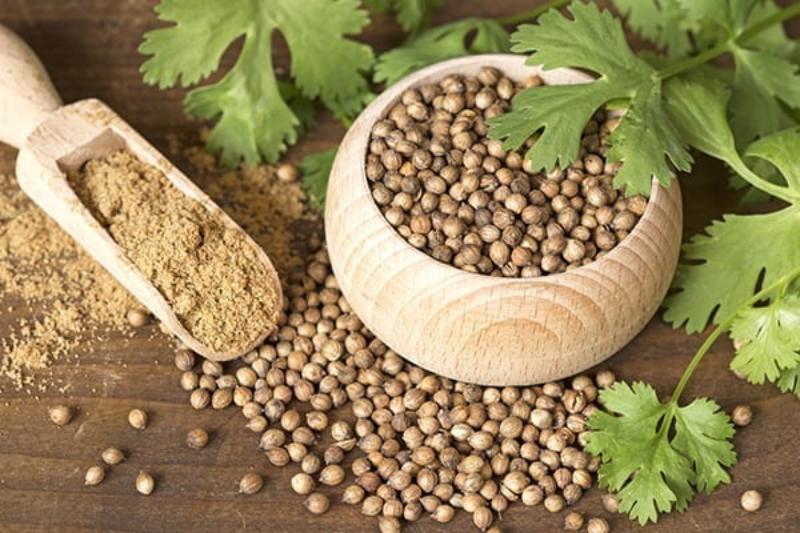High cholesterol is a serious potential risk to one’s health, particularly when it comes to heart-related or stroke-related hazards. While there are artificial methods to lower raised cholesterol levels, there are also many natural ways to lower them.
These herbs guard against LDL cholesterol oxidation and aid in the treatment of cardiovascular disorders.
1. Cilantro (coriander)
Due to its high antioxidant content, coriander herb is well known for its ability to lower cholesterol. By raising HDL (good cholesterol) levels, it promotes heart health and aids in the regulation of LDL (bad cholesterol). Because coriander seeds increase the production of bile, which aids in the digestion and absorption of cholesterol, their traditional use has been shown to reduce cholesterol levels. Its diuretic and anti-inflammatory qualities also aid in eliminating waste and excess salt, which promotes even greater heart function. You should always incorporate fresh cilantro or coriander seeds in your dishes for the most health benefits.
2. Basil
Culinary basil has a pleasant aroma and is also beneficial for lowering cholesterol and other health issues. It also contains a lot of antioxidants, like eugenol, which prevents LDL cholesterol from oxidizing and so halts one of the processes that cause plaque to build up on arterial walls. One of basil’s benefits is that it improves blood circulation and reduces inflammation, which can help prevent disorders that could harm the cardiovascular system. Basil is a heart-healthy food that can be consumed either fresh or dried. It is suggested to add basil leaves to soups, salads, and teas.
3. Fenugreek
Soluble fiber, found in fenugreek leaves, has been shown to lower cholesterol levels by eliminating bile acids from the body. As a result, reduced bile acid promotes blood cholesterol conversion, which lowers blood cholesterol. This herb is worth considering since it helps naturally lower “bad” cholesterol, particularly in overweight people with high LDL levels. Positive effects on cholesterol levels can also be noted with consistent use of fenugreek seeds, either soaked or powdered.
4. Turmeric
Turmeric’s primary component, curcumin, has been demonstrated to have heart-healthy anti-inflammatory and antioxidant properties. It helps to reduce low-density lipoprotein (LDL) levels and keeps the arteries free of deposits that could aggravate cardiac problems. Turmeric additionally aids in the liver’s ability to eliminate cholesterol from the body. Whether it’s in the form of golden milk or curries, including turmeric to your diet on a regular basis will help lower cholesterol and protect your heart over time.
5. Ginger
Due to its antioxidant properties, ginger lowers triglycerides and low-density lipoprotein cholesterol. Additionally, it promotes blood flow and prevents LDL from oxidizing, reducing the likelihood of artery blockage. Another heart-healthy herb is ginger, which can also be added to teas, soups, and stir-fried foods. Regular consumption of ginger reduces harmful cholesterol and strengthens the heart by reducing blood vessel and artery inflammation.


